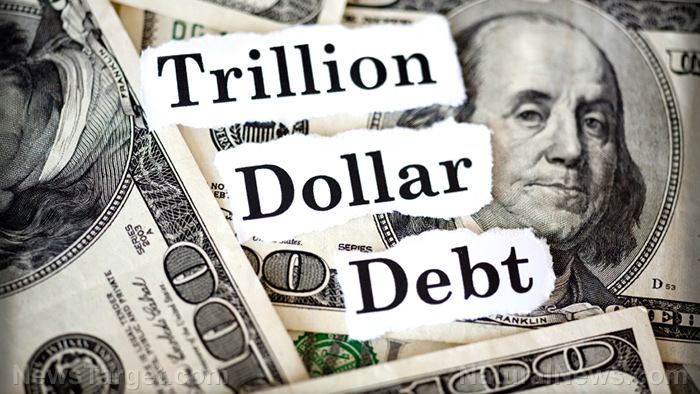Biden’s $42B broadband plan HASN’T CONNECTED a single user to the internet
06/27/2024 / By Ava Grace

A $42 billion broadband plan signed by President Joe Biden in 2021 that seeks to bring internet connections to more remote areas of the U.S. has failed to do its purpose three years on.
The broadband plan was signed in November of that year as part of Biden’s Infrastructure Investment and Jobs Act (IIJA), which earmarked $65 billion for it. Of this amount, $42.45 billion was set aside for a Broadband Equity, Access and Development (BEAD) program that would give subsidies to internet service providers (ISPs) that build in unserved and underserved areas, according to Ars Technica.
The BEAD program had a noble purpose – to bring needed internet connection to Americans in more remote and less populated parts of the country. However, as the 2024 presidential election looms and Biden’s term in office may be nearing an end, not a single person in rural America has been connected to the internet under the 81-year-old Democrat’s plan.
In fact, no project receiving funds from the Biden government program will break ground until 2025. According to ISPs and lawmakers on Capitol Hill, the hold-up is because of the Biden administration’s overly burdensome requirements for accessing the $42 billion program. (Related: Poll finds older Arizona voters OVERWHELMINGLY favor Trump over Biden.)
They cite climate change mandates, union worker requirements and woke diversity regulations for the slow-down in building out rural internet infrastructure. Additionally, the ISPs point to attempts by the Department of Commerce to regulate consumer rates in a manner beyond the agency’s authority as compounding the program’s ineffectiveness.
FCC commissioner: Biden admin’s onerous requirements delay broadband projects
While lawmakers on the House Budget Committee say they believe rural broadband projects should begin in 2025 and be well underway by 2026, many in the federal government do not share their optimism.
Brendan Carr, head of the Federal Communications Commission (FCC), expressed belief that the projects won’t be near completion in many undeserved areas until 2030 because of the delays due to the Biden government’s onerous requirements.
“There hasn’t been a single shovel’s worth of dirt that has even been turned towards connecting people. They just put too many steps in the process,” he said. “The addition of a substantive wish list of progressive ideas they’ve layered in certainly didn’t help with the timeline.”
In June of last year, Reuters reported that the Biden administration divided the BEAD program’s $42 billion among the U.S.’s 50 states and territories. According to the outlet, the per-state allocation was based on a coverage map from the FCC that details gaps in internet access.
Based on the new list, $3.1 billion went to Texas while $1.9 billion went to California. Other less populous states like Virginia, Alabama and Louisiana also made it to the top 10 list for funding due to lack of broadband access. According to Reuters, “these states have large rural areas with less internet connectivity than their major cities.”
“The [IIJA] will deliver $65 billion to help ensure that every American has access to reliable high-speed Internet through a historic investment in broadband infrastructure deployment,” the White House said at the time the bill was signed into law. “The legislation will also help lower prices for Internet service and help close the digital divide, so that more Americans can afford Internet access.”
But with Carr’s admission and the revelations of both lawmakers and ISPs, this promise from the Biden administration will most likely remain just that – a promise.
Head over to InformationTechnology.news for similar stories.
Watch Jesse Watters of Fox News commenting on the Biden administration’s $42 billion “broadband boondoggle” in the clip below.
This video is from the Son of the Republic channel on Brighteon.com.
More related stories:
CIA is involved in domestic censorship collusion with Big Tech, bombshell report reveals.
Movie industry’s push for ISP site-blocking legislation sparks controversy over internet censorship.
Sources include:
Submit a correction >>
Tagged Under:
Access and Development, big government, Brendan Carr, Broadband Equity, broadband internet, bureaucracy, computing, conspiracy, Federal Communications Commission, finance riot, glitch, information technology, Infrastructure Investment and Jobs Act, insanity, Internet access, Joe Biden, money supply, outrage, White House
This article may contain statements that reflect the opinion of the author
RECENT NEWS & ARTICLES
COPYRIGHT © 2018 GOVERNMENTDEBT.NEWS
All content posted on this site is protected under Free Speech. GovernmentDebt.news is not responsible for content written by contributing authors. The information on this site is provided for educational and entertainment purposes only. It is not intended as a substitute for professional advice of any kind. GovernmentDebt.news assumes no responsibility for the use or misuse of this material. All trademarks, registered trademarks and service marks mentioned on this site are the property of their respective owners.



















